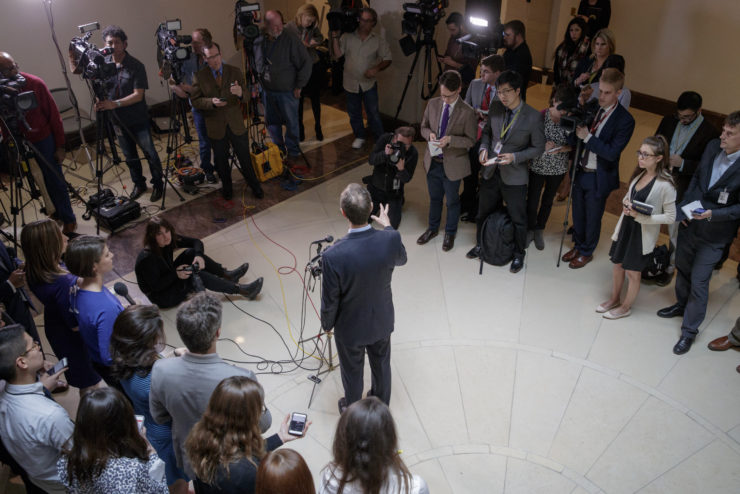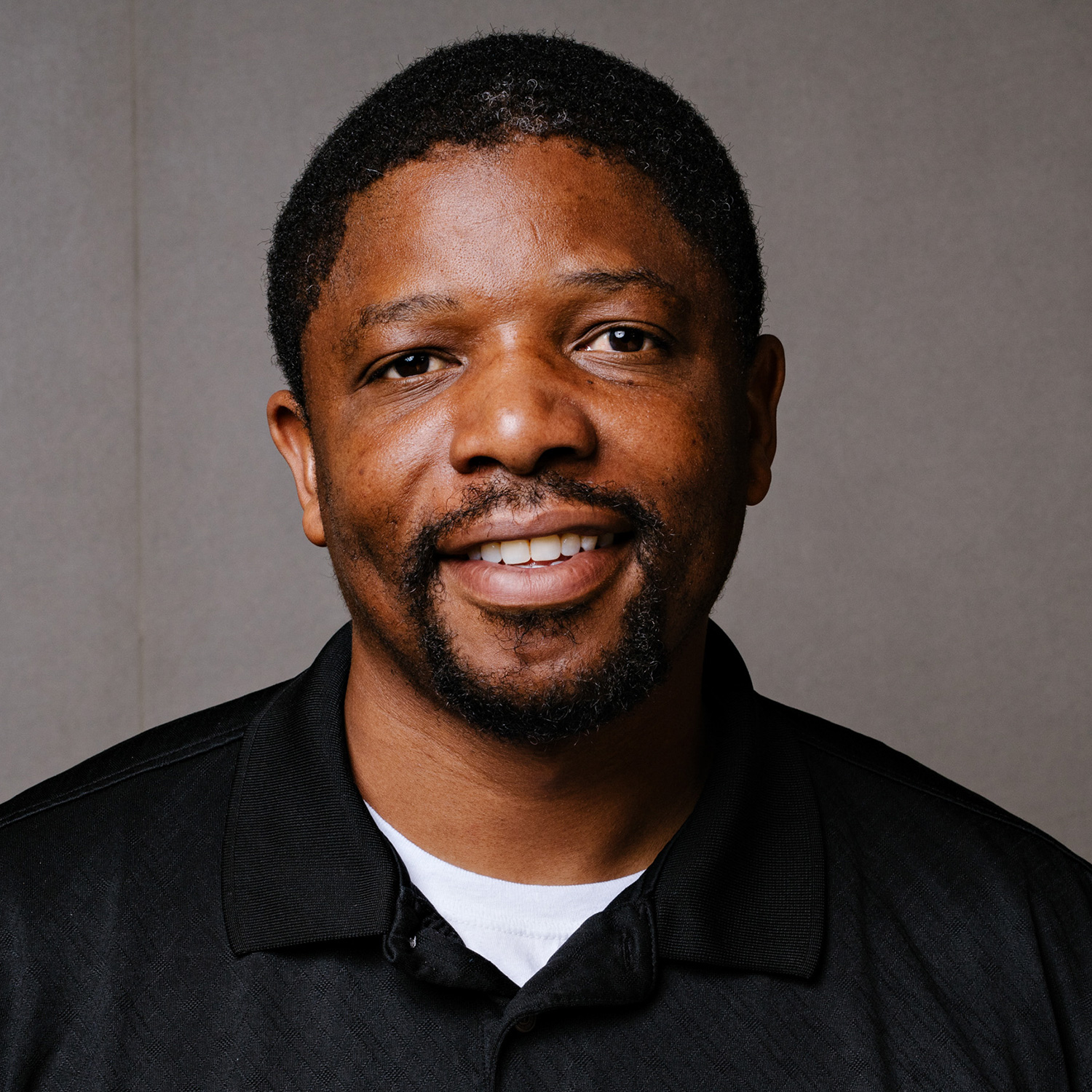
Representative Adam Schiff, ranking member of the House Intelligence Committee, speaks to reporters on Capitol Hill on March 30 as the panel continues to investigate Russian interference in the 2016 U.S. presidential election and the web of contacts between Trump's campaign and Russia
The media, along with former FBI Director James Comey, helped Donald Trump become president. Nate Silver of FiveThirtyEight.com has detailed why. But it doesn’t take a mathematician to understand that critical reporting in the final days and weeks of a close election could have swung 80,000 voters (out of 135 million) from one candidate to another.
We were used, twice, by Comey and Russia (via WikiLeaks) and will surely be used again if we don’t dismount our high horse and begin brainstorming about journalistic principles that will be up to the task in the 21st century. Given what occurred last November, there should be little doubt Russia, or another hostile actor, will attempt to undermine confidence in our democracy again. And the next law enforcement official who steps into the middle of a tight race at the last minute may have bad intentions instead of simply being blinded by self-righteousness the way Comey was.
What to do? Here are a few things I’ve begun exploring with fellow members of the Charlotte Observer Editorial Board:
- Many media members have repeatedly called for a special Congressional commission to assess the reach of Russia’s influence into last year’s election. The media needs to commission a similar blue ribbon panel to study the ways Russia used the principles of a free, independent press to try to undermine our democracy. A diverse group of the best journalistic minds should be convened—and soon—to honestly assess what we got right, what we got wrong, and how we can balance honoring the new realities of an ever-changing media market with protecting ourselves against the disruptions caused by a well-timed, last-minute dump of stolen information designed to create a transparency imbalance between the final two candidates in a heated race. This can’t be a piecemeal process; individual organizations speaking to themselves is not good enough. This is a collective problem and can only be solved with a collective solution. The French media faced a similar attack but showed more restraint, and didn’t rush to publish the findings of the document dump, though didn’t have to face the drip, drip U.S. media had to contend with for weeks last fall.
- We need to get back to basics and stop treating investigations—no matter how eye-popping the potential headlines—as though they are convictions. Many news outlets are highly skeptical of any accusations made against a candidate at the last-minute, whether in a gubernatorial race or for sheriff in a small town. Many also have strict rules that deny the publication of even letters to the editor or opinion pieces too close to an election because they understand it is important not only that the public has time to read the reports, but time to fully digest them. In the most important race of 2016, we failed on both counts. Granted, WikiLeaks and Comey represented unique challenges—all the more reason to grapple now with how best to handle similar challenges in the future.
- If we are going to report on unresolved investigations, we must do a better job of contextualizing them. We need more facts and less speculation about the potential impact on the horse-race. We did a poor job of explaining to the public the complexity of our classification system or that governmental agencies frequently disagree among themselves about what should or shouldn’t be classified, and when and how. Neither did we make it clear that a host of government employees daily wonder how best to communicate, including through private email that is sometimes more secure and efficient than the government system.
The fact is, we treated the Clinton email probe as though Clinton was guilty of … something. We did that even though she had neither been arrested nor charged. In a way, that means we treated her worse than the alleged child molester down the street, a person whose name nor photo would have shown up in our pages until he had been formally charged, or at least put in handcuffs. A politician’s worst nightmares must include being convicted by public opinion based solely on the announcement of an investigation—which proves absolutely nothing—lose a tight race because of it, then be cleared when it is too late to matter to voters. That’s also why media must be responsible when talking about potential Trump ties to Russia. They are being investigated—but they have not been proven. Readers should be reminded of that truth in every story and broadcast.
And anyone would feel helpless when personal thoughts and feelings from unguarded, private moments are put on display for all to see while your opponent gets to criticize you for them and be shielded from having his own scrutinized publicly. That imbalance does not give the public a true sense of who it is choosing between. We must be more mindful of that reality going forward.
But we can’t begin answering any of these questions if we don’t first get out of our defensive crouch and stop being more concerned with re-litigating all the mistakes Clinton made instead of owning up to our own.


